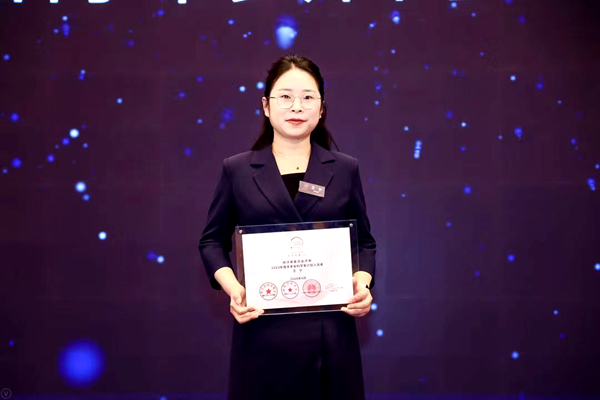Recently, the results of the 8th China Future Female Scientists Program were announced, with 10 candidates from all over the country selected, including Prof. Wang Ning from our college. This is the first time that a young female scientist from our university has been selected to be in this program, which is a breakthrough for us.

Prof. Wang Ning is a female professor and doctoral advisor, born in Dali county of Shaanxi province. She studied for her bachelor, master, doctoral degrees and worked as a postdoctor at our university, mentored by Prof. Wang Xiaojie. She became a faculty member at the College of Plant Protection of NWAFU since March 2023, mainly focusing on the research of the interaction mechanism between wheat and stripe rust. She has conducted innovative research on the functions and mechanisms of negative regulatory factors of host immunity and stripe rust-sensitive genes in the interaction process between wheat and stripe rust. She has made significant progress in the identification and regulation of wheat susceptible genes, and created wheat materials that take into account disease resistance and major agronomic traits, providing ideas and resources for the genetic improvement of wheat resistance to stripe rust. She has published 5 SCI papers as the first author or corresponding author, including the research results published in Cell, which uncovered the world's first wheat susceptible gene TaPsIPK1 utilized by pathogen virulence proteins. The susceptible gene negatively regulates the basic immunity of wheat and can be hijacked by the virulence protein PsSpg1 secreted by stripe rust, released from the plasma membrane into the nucleus, manipulating the transcription factor TaCBF1 in the nucleus, inhibiting the transcription of resistance-related genes, enhancing the transcription level of TaPsIPK1, and further promoting wheat susceptibility. This research systematically revealed the pathogenesis mechanism mediated by the phosphorylation and transcriptional regulation cascade of PsSpg1-TaPsIPK1-TaCBF1d, and used gene editing technology to precisely knockout the susceptible gene, disrupting the recognition and interaction between virulence proteins and susceptible genes, achieving broad-spectrum resistance to stripe rust in wheat. In two years of field trials, the wheat edited lines exhibited high resistance to stripe rust while maintaining the main traits and qualities of the crop, demonstrating good application potential.
The Future Female Scientists Program was established by the China Association for Science and Technology in 2015 and is reviewed along with the China Young Female Scientist Award. It is the development and extension of the World's Most Promising Female Scientists Award established by UNESCO in China. The program is mainly aimed at discovering and cultivating Chinese female doctoral students or postdoctoral fellows engaged in research in basic science, life science, or computer and information fields, who demonstrate strong research capabilities and development potential, and are under 35 years old, as the "reserve force" for the China Young Female Scientist Award.